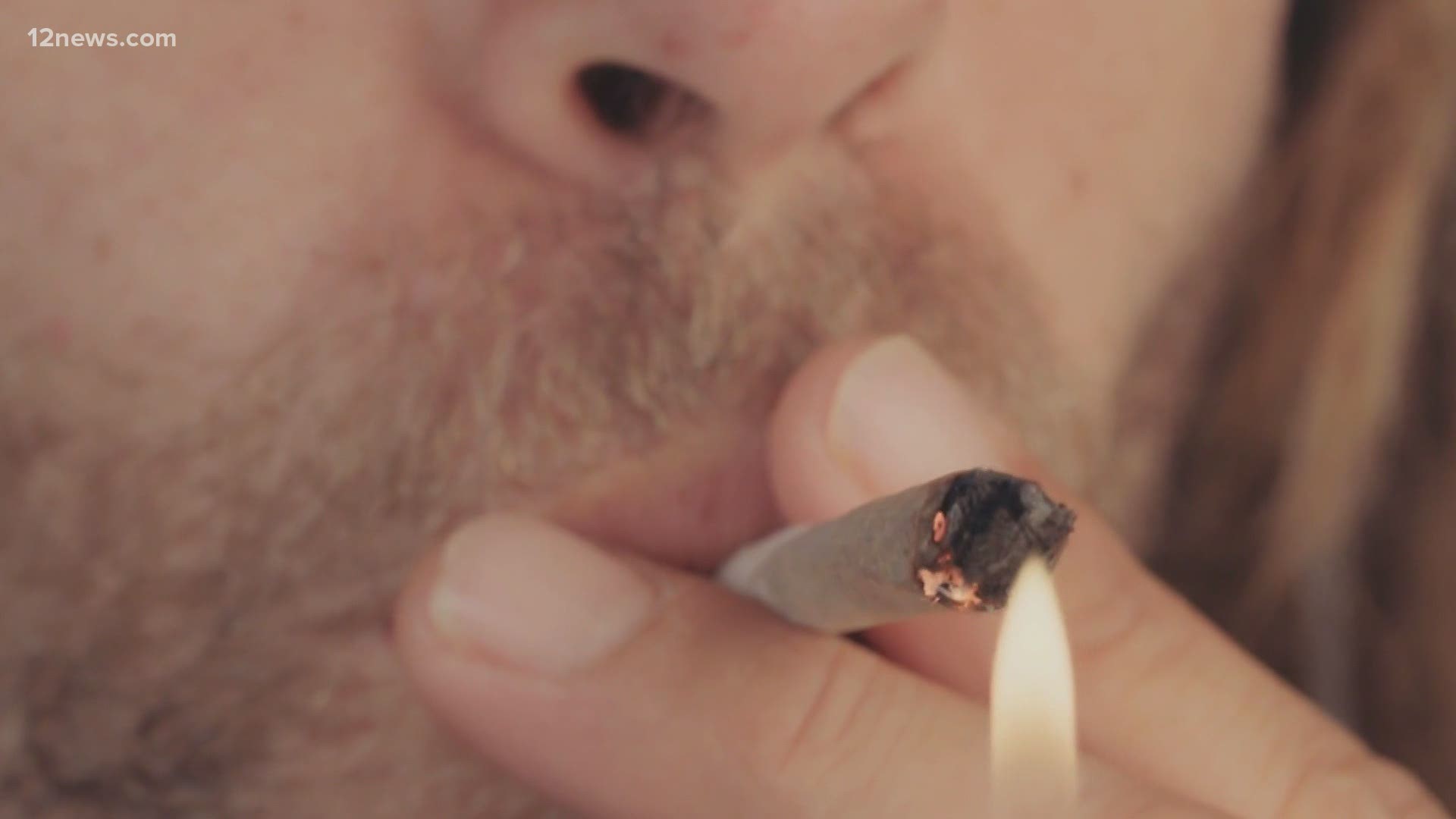PHOENIX — Voters approved recreational marijuana sales in Arizona in November. In January, dispensaries across the state were able to sell the drug for the first time to legal adults who did not have a medical marijuana card.
More Arizonans than ever before are presumably smoking marijuana, but the number of drug-related DUI arrests are down.
THE NUMBERS:
"It's legal to purchase it, to consume it, but not while driving," Alberto Gutier, director of the Governor's Office of Highway Safety, said.
Gutier said the current numbers may be a little misleading.
According to the Office of Highway Safety, so far in 2021, Arizona has seen 582 DUI drug arrests.
Those numbers are on pace for 4,518 arrests this year, which would be the lowest number of DUI drug arrests since 2014.
"It is, but because not all the data is in yet," Gutier said.
Gutier expects as more training is done, those numbers will go up following a pattern he's studied in other states that have legalized marijuana.
"We think there will be an increase all over the state, slowly but surely," Gutier said.
THE TESTING:
"It’s hard, it’s really hard because unlike alcohol, there is no test or no chemical test one can do telling people someone is under the influence of marijuana. All it can show is prior use." Lawrence Koplow, a former prosecutor turned DUI lawyer said.
Marijuana is not like alcohol. We have breathalyzers, and a system in place to test for a baseline of impairment. Alcohol is metabolized by the body, often going away in a matter of hours.
Marijuana requires a blood test, and even then, doctors say remnants of use can last long after the effects have worn off.
"You can still test positive the next day, even if you are not feeling high," Dr. Frank LoVecchio with Valleywise Health Medical Center said.
LoVecchio said signs of THC can stick around. But how long can depend on a myriad of factors, from use, to how the marijuana was taken, to the amount of fat a person has.
LoVecchio said THC is often stored in fat cells and can stick around longer.
"Blood tests we can do, even those are not that accurate," LoVecchio said.
THE LEGAL SIDE:
States across the country vary on how they determine if someone is too high to drive.
Usually THC is measured in Nanograms, which can be used to create a limit similar to BAC in alcohol.
However, it is not consistent state to state. Arizona currently does not have a Nanogram "limit."
Defense attorneys argue that having THC in their system is not a good indication of impairment.
"Within three to five hours, that’s a very good indication that they probably are impaired, but it’s not definitive," Koplow said.
The science behind what indicates signs of impairment are still being studied.
Gutier admitted there are challenges in figuring out the source of impairment.
"That’s where officers have to be very careful," Gutier said "I think the most important part is to be right and proper and do your testing."
Gutier praised officers who are trained to take blood and others who have been trained to study signs of impairment in the field.
Gutier pointed out traffic stops are usually initiated after signs of erratic driving.
"In the majority, majority of cases the arrest is valid, but there may be some mistakes may be made. Could be from other reasons the person is impaired." Gutier said.
Gutier's advice to drivers, to be careful, and not take chances if they are under the influence.
Proposition 207 will send more money towards training and equipping officers. Gutier said agencies have already received $5 to $7 million. The money will go towards the agencies that are making the most arrests.

